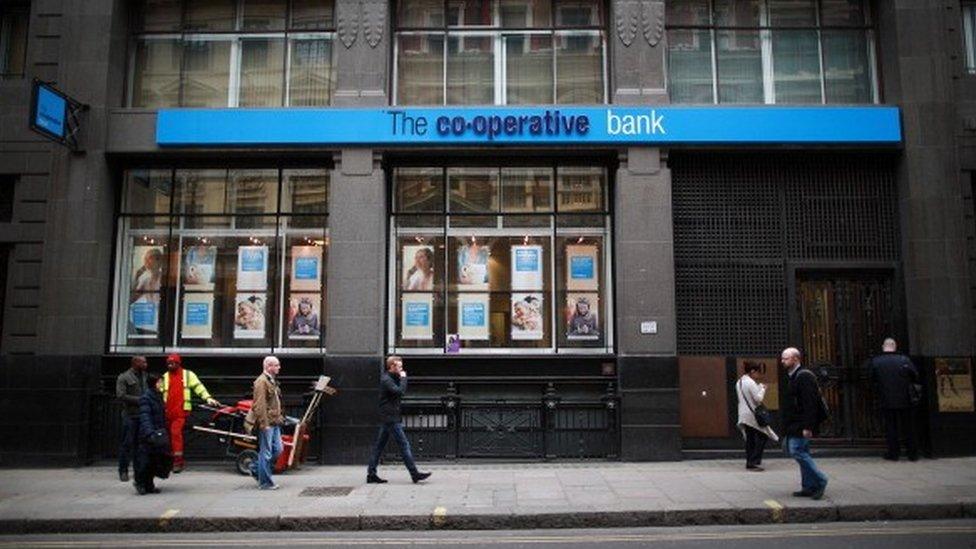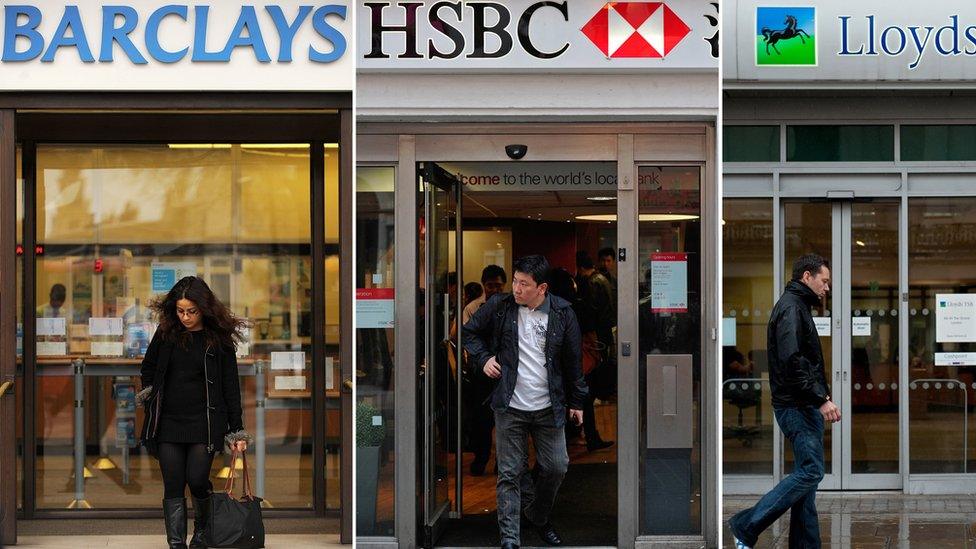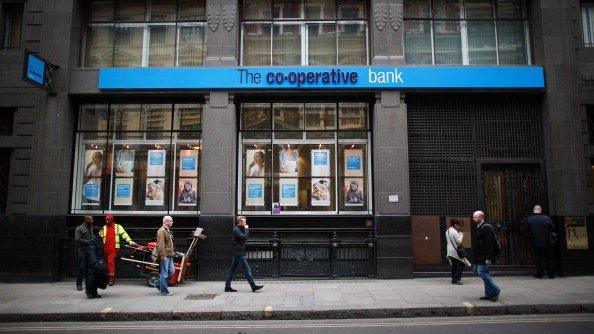Co-operative Bank warns of Brexit impact
- Published

Co-op Bank has said economic uncertainty following the UK's Brexit vote may hamper growth.
Market conditions are "challenging" for retail banks, it said.
The bank reported a narrowing of half-yearly losses, external to £177m but said "legacy issues" would continue to hit its financial performance until it has finished a rescue plan.
The bank almost collapsed in 2013, after bad property loans contributed to a £1.5bn hole in its finances.
"Today's market conditions are challenging for all retail-focused banks and the macroeconomic uncertainty following the result of the EU referendum, including the likelihood of lower-for-longer interest rates, may restrict our ability to grow revenue in the short term," said chief executive Niall Booker.
The Bank of England lowered interest rates at the beginning of August to a record low, as part of measures to stimulate the UK economy after the Brexit vote.
Co-op Bank said the vote could also lead to a contraction in the UK property market, affecting mortgage loan growth.
It added that reductions in income could force it to reduce costs and spending on projects, while higher unemployment and lower property prices could make it harder for the bank to recover the full value of some of its loans.
Co-op recovery
The bank's pre-tax losses of £177m were down from last year's £204.2m, but it said some of this was due to one-off gains, including £58.1m from the sale of its share in Visa Europe.
It has set aside another £33.5m for payment protection insurance (PPI) compensation after the Financial Conduct Authority proposed a later-than-expected deadline for claims.
The Co-op Bank said it would remain loss-making until the end of 2017.
"We have always been clear that turning the bank around would be a significant journey of at least five years and so far the overall story remains one of progress and improvement," said Mr Booker.
He added that the plan to replace him as chief executive was in place, saying that deputy chief executive Liam Coleman would succeed him on 1 January 2017.
The bank was owned by the Co-operative Group until 2013, when a £1.5bn hole was discovered in its finances.
That year the group had losses of £2.3bn - the largest in the Co-operative Group's 150 year history - £2.1bn of which were from the bank.
The group had to go to outside investors to support the Co-op Bank, which is now 80% owned by US hedge funds, with the remainder held by the Co-op Group.
In 2014 former Co-op Bank boss Paul Flowers pleaded guilty to drug possession at Leeds Magistrates' Court.
And in January 2016 the Bank of England banned two former Co-operative Bank executives - former chief executive Barry Tootell and former managing director Keith Alderson - from holding senior banking positions.
- Published9 August 2016

- Published9 August 2016

- Published1 April 2016
